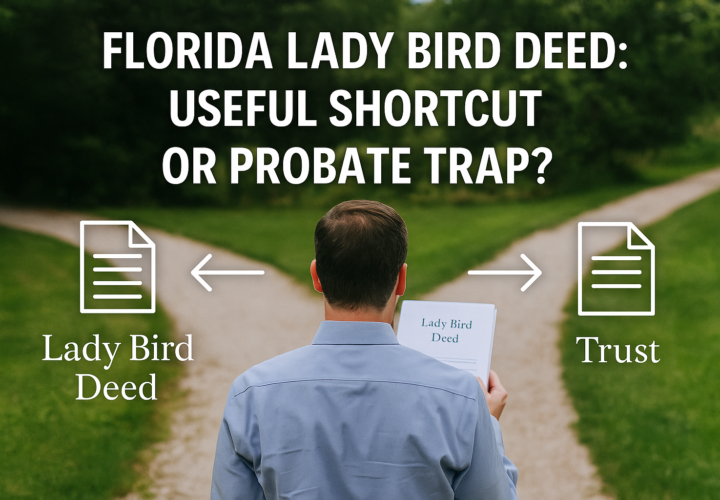Dying without a will, known as “intestate,” can complicate the process of distributing your assets and determining who will inherit your estate. In Florida, the state’s intestacy laws will determine who receives your assets if you pass away without a valid will in place. Understanding how these laws work is essential for anyone who wants to avoid leaving their loved ones in a difficult situation.
Florida’s Intestacy Laws: Who Inherits?
In Florida, if you die without a will, your estate will be distributed according to a predetermined order set by the state’s intestacy laws. The distribution depends on your family structure at the time of your death.
- If You Are Married with No Children: If you are married and have no children, your entire estate will typically go to your spouse.
- If You Are Married with Children from the Same Spouse: If all of your children are with your current spouse, your spouse will inherit the entire estate.
- If You Are Married with Children from a Previous Relationship: This is where things get more complicated. In this situation, your spouse will inherit half of your estate, and your children will inherit the other half. This can sometimes lead to disputes or unintended consequences.
- If You Are Unmarried with Children: If you are unmarried but have children, your estate will be divided equally among your children. If one of your children has predeceased you, their share may pass to their descendants.
- If You Are Unmarried with No Children: If you are not married and do not have children, your estate will pass to your closest living relatives, starting with your parents. If your parents are deceased, the estate will pass to your siblings, and so on.
The Downsides of Dying Without a Will in Florida
- No Control Over Who Inherits: Without a will, Florida’s intestacy laws will dictate how your estate is distributed, which may not align with your wishes. For example, if you have a blended family or want to leave specific assets to certain individuals, dying intestate could result in unintended outcomes.
- Probate Delays and Costs: Dying without a will in Florida can lead to longer probate proceedings, as the court must follow state laws to determine who inherits. This can result in higher legal fees and delays for your loved ones.
- Potential Family Disputes: When there is no will, family members may disagree over who should inherit or how the estate should be divided. These disputes can lead to costly and stressful legal battles.
- No Guardianship for Minor Children: If you have minor children, dying without a will means you will not have the opportunity to name a guardian for them. The court will make this decision, which may not reflect your wishes.
Avoiding Intestacy with a Florida Estate Plan
The best way to avoid the complications of dying intestate is to create a comprehensive estate plan that includes a valid will or trust. This allows you to have control over how your assets are distributed and ensures that your loved ones are taken care of according to your wishes.
To ensure your estate is distributed according to your wishes and to avoid potential legal complications, contact us today for a free consultation on creating a comprehensive estate plan tailored to your needs.



